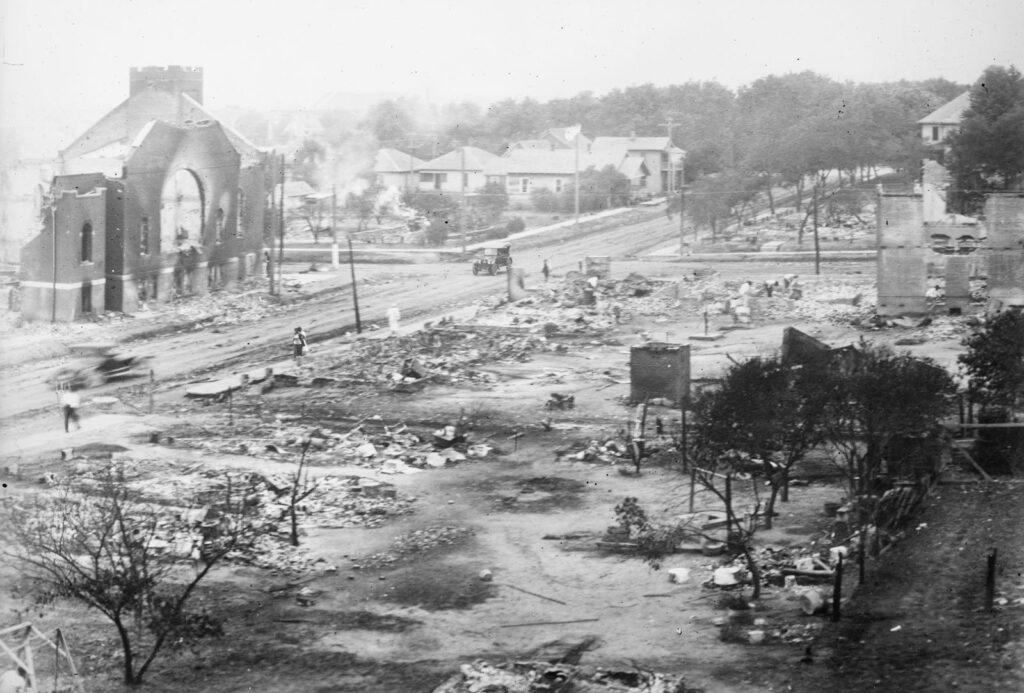
Source: American National Red Cross Photograph Collection, Library of Congress, Washington, D.C. (reproduction no. LC-DIG-anrc-14744)
Mayor G.T. Bynum of Tulsa, Oklahoma, has created a commission to study reparations for the 1921 race massacre in the city. The commission is tasked with studying how reparations could be paid to survivors, descendants of survivors, and residents of North Tulsa, as well as suggesting actionable solutions.
Bynum, who is a Republican, stated on X (Twitter): “Today [Aug.1, 2024], we are announcing the establishment of a commission to develop a plan for reparations in Tulsa. I will establish the Beyond Apology Commission by executive order and we will work together to identify commissioners who will advance this work…. And I want to be clear that we are not just establishing a study group. Among the immediate requests I will have of this commission is to make recommendations on a housing program that we can incorporate into the City’s planned use of housing funds approved by voters last year. This program will emphasize home ownership, and advance the goal of creating intergenerational wealth among Race Massacre descendants.”
Unlike other American reparations efforts, which generally address the whole of slavery as the root need for reparations, the Tulsa “Beyond Apology” commission will work to redress the single 1921 event.
New York Times journalist Kate Selig, explains, “during the 1921 massacre, white mobs burned Greenwood, a prosperous neighborhood known as Black Wall Street, to the ground. As many as 300 Black people were killed, hundreds more were injured, and thousands were left homeless. City officials, historians and the courts acknowledge that the massacre has led to generations of racial inequity in Tulsa.”
The formation of the commission follows the June 12 dismissal of a court case in which the then three remaining Tulsa massacre survivors argued they were due reparations under Oklahoma’s public nuisance law. Hughes Van Ellis died last year at 102 before the resolution of the lawsuit, leaving only two known survivors: Viola Fletcher, 110, and Lessie Benningfield Randle, 109.
Discussion Questions
1. How do you define “reparations”? Consider options including but not limited to cash payments, tax breaks, housing funds. Explain your answer.
2. Should the federal government pay reparations to the descendants of enslaved people? Why or why not?
3. Should the descendants and survivors of the Tulsa race massacre be paid reparations? Why or why not?
Sources
G.T. Bynum, x.com, Aug. 1, 2024
Sam Cabral, “Oklahoma Court Rejects Tulsa Massacre Survivors Suit,” bbc.com, June 12, 2024
Kate Selig, “Tulsa Creates Commission on Reparations for Race Massacre,” nytimes.com, Aug. 3, 2024

